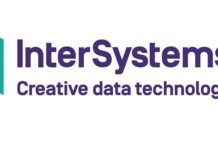Patients and doctors alike need to be confident to use modern eHealth tools in order to provide both optimal care and best possible quality of life in ageing European societies.
“EHealth is important, because it holds potential benefits for European citizens in many ways,” said the Danish Minister of Health, Astrid Krag.
EHealth, she argued, made it easier to exchange health data. It improved the way resources were allocated and contributed to patient safety. “But above all, it creates the basis for a more individualised treatment by empowering and involving patients.”
EHealth requires patient empowerment and vice versa
The President of the republic of Estonia, Toomas Hendrik Ilves, who was the Chair of the European eHealth Taskforce that was established in 2011, made clear that patient empowerment and eHealth cannot do without each other.
Both in Denmark and in Estonia, a national electronic patient record system is currently being established that makes a patient the “owner” of his or her patient data in a very literal sense.
By being able to give access to personal data, this kind of electronic record makes it possible to ask for second opinions. It also paves the way for individualised care scenarios in which different care providers have access to the data they need. And the patient supplies data himself by telemonitoring technologies and other eHealth tools.
Neelie Kroes, Vice-President of the European Commission and responsible for the Digital Agenda for Europe, said her vision was a world in which patients don’t have to be passive recipients of healthcare but where simple ICT tools can put health choices into their hands. A healthcare system like that would be at once more cost-effective and more empowering, she argued.
John Dalli, European Commissioner for Health and Consumer Policy, put it this way: “The time of doctors talking down to passive patients is over.”
European Commission continues to be dedicated to push eHealth forward
In her opening speech, Kroes said that healthcare was still a decade behind other sectors in terms of ICT-driven structural transformations.
She quoted projections that have calculated a 10% increase in the European market for healthcare IT from 2010 to 2015.
“That is tiny when you consider the massive scale of the digital revolution elsewhere,” she said.
Kroes announced that the European Commission will continue to push eHealth forward. In October 2012, the new version of the eHealth Action Plan is scheduled to be presented: “It will set the tone for years to come in ensuring empowerment, efficiency and innovation in the healthcare sector.”
























